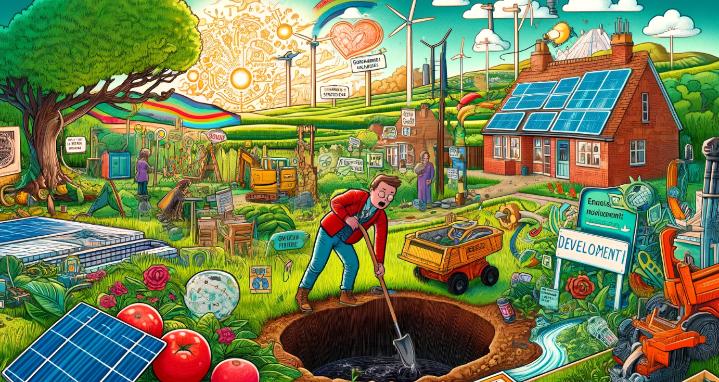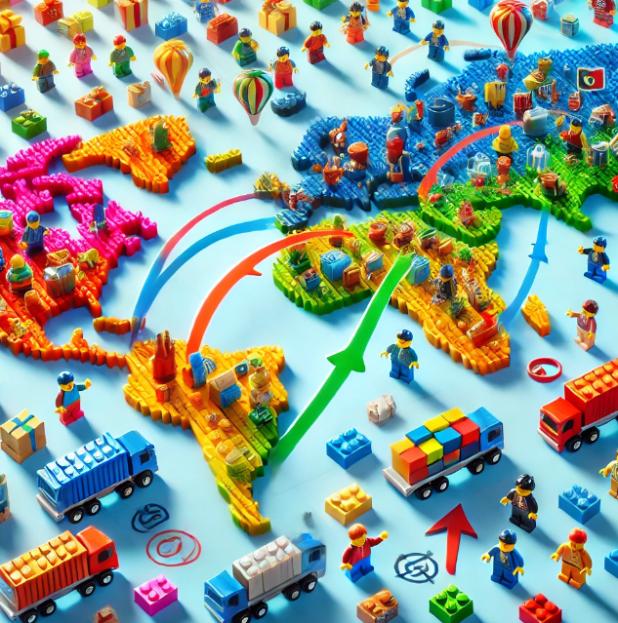IGCSE 0455 ECONOMICS
Unit 5 Development
What is IGCSE Development

READY FOR SOME IGCSE ECONOMICS?
IGCSE Economics Unit 1
The Basic Economic Problem
Cambridge 0455
IGCSE Economics Unit 2
Allocation of resources
Cambridge 0455
IGCSE Economics Unit 3
Microeconomics
Cambridge 0455
IGCSE Economics Unit 4
Macroeconomics
Cambridge 0455
IGCSE Economics Unit 5
Economic development
Cambridge 0455
IGCSE Economics Unit 6
International trade
Cambridge 0455
Why You’ll Love Unit 5 Development IGCSE
So I was digging the garden the other day and you’ll never guess what? I struck oil! This nasty black liquid started gushing out of the ground. My wife was appalled as it ruined the cauliflowers, but I was over the moon! She didn’t know what it meant! It meant………’we hit the big time’ and we were rich! Rich beyond our wildest dreams! This silly story is a little bit like Guyana who discovered oil relatively recently and have since seen some of the highest growth rates in the world. This massive influx of money now enables them to develop rapidly and maybe perform the sort of economic miracle that occurred in the Gulf States when they similarly discovered oil! This unit is all about progress and not so much progress. Stories of success and failure! Stories of those who became economically stuck and those who managed to move on and prosper! But the beauty of the IGCSE Unit 5 is that the story changes all the time. Economics changes all the time!
IGCSE Unit 5 Development is one of the most engaging parts of the IGCSE Economics course, offering students a chance to explore how countries rise and fall economically. This unit focuses on the factors influencing economic development, the challenges countries face in breaking out of poverty, and the dramatic contrasts between nations that thrive and those that stagnate. Whether you’re studying why India is becoming a global powerhouse or why Sri Lanka slipped into a debt crisis, IGCSE Economics Development is a story of both opportunity and caution.
In this unit, you’ll delve into the core indicators of development: GDP per capita, literacy rates, and life expectancy. These measurements reveal stark differences between countries. For instance, Vietnam has surged forward with its export-led economy, attracting foreign investment and providing jobs to millions, while Lebanon’s economic collapse has left much of its population without basic financial security. Understanding these contrasts is key to appreciating the complexity of economic progress and how governments and institutions work to manage it.
Study Unit 5 IGCSE Economics, and you’ll learn about the role of natural resources, human capital, and infrastructure in shaping a country’s future. For example, Guyana’s recent discovery of oil has skyrocketed its economic growth potential, but the challenge lies in using that wealth sustainably. On the other hand, countries like the Democratic Republic of Congo, which are rich in minerals, struggle with corruption and weak governance, highlighting how resource wealth alone doesn’t guarantee success.
One of the most fascinating aspects of IGCSE Unit 5 Development is examining how international aid and trade impact development. Countries like Ethiopia have benefited from infrastructure projects funded by foreign governments and institutions, helping them modernize agriculture and build roads. Yet, critics argue that such aid can create dependency or fail to reach the people who need it most. Similarly, trade has lifted millions out of poverty in Asia, but protectionist policies and global trade wars often derail progress in less developed countries.
Another critical topic is the environmental aspect of development. As countries industrialize, they often face environmental degradation. For instance, rapid urbanization in India has boosted its economy but led to severe air and water pollution. Balancing economic growth with sustainability is a key challenge for policymakers—and one you’ll tackle as you revise Unit 5 IGCSE Economics.
This unit isn’t just about understanding definitions or statistics; it’s about exploring real-world stories of transformation. Countries like South Korea and Singapore serve as inspiring examples of how strategic policies, education, and trade can lead to economic miracles. But it also teaches us caution, as seen in Venezuela, where mismanagement of its vast oil resources led to hyperinflation and poverty.
Whether you’re learning about the factors that drive growth, the barriers that hold countries back, or the role of international organizations like the IMF and World Bank, IGCSE Unit 5 Development helps you connect theory to the real world. You’ll understand why some nations have booming economies while others struggle to provide basic needs for their citizens.
So why is this unit so important? Because development isn’t just about studying the past—it’s about shaping the future. As you explore IGCSE Economics Development, you’ll gain insight into the challenges and opportunities of creating a world where everyone has access to education, healthcare, and economic stability. Whether you’re preparing for exams or just curious about how the world works, Study Unit 5 IGCSE Economics and discover the fascinating journey of nations striving to build a better tomorrow.



